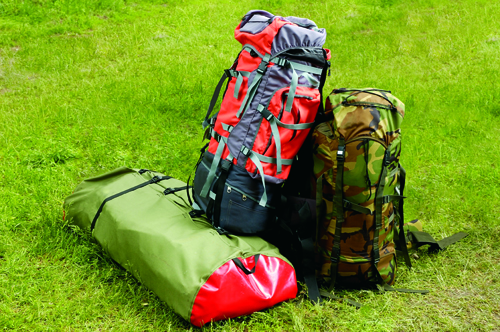
The outcomes of those camps and the camps of today have remained the same – leadership, team work, communication, problem solving, personal development, learning and, last but certainly not least, fun.
However, there have been some major changes in the way in which school camps are run and the requirements placed on the organisers of camps.
Key to running a successful camp in today’s environment is the need to plan programmes to enhance students’ learning outcomes and to strengthen safety management in education outside the classroom (EOTC).
Quality planning includes:
• Keeping the risk management and paperwork proportional to the level of risk;
• Having a systems approach to EOTC management;
• Having clear communication with parents.
Quality EOTC management systems must comply with the school’s and/or provider’s quality management systems (QMSs).
Activities
The use of activities on a school camp facilitates achieving the outcomes you want for your camp. They are also the things students will remember, the things they’ll take photos of, tell their parents about, and remember for life.
For some it’s their first foray into outdoor recreation, away from the Xbox or a home life limited in experiences and opportunities.
Activities that are currently available on school camps may include team building, archery, tramping, camping, caving, canyoning, high rope and low rope courses, kayaking, sailing, raft building, camp cooking, bushcraft and many more.
Some things to look out for when choosing activities include whether instructors are needed, whether the skills are available in-house (or could parents help?), whether the activities are appropriate for the age group, does the in-house versus instructor ratio meet your budget requirements, and, importantly, why the group is on the camp.
So often I see people doing activities because they can without any thought as to whether they need to.
Catering
There is more to camp catering than good old Watties spaghetti on white toast.
The biggest decision to make is whether to cater in-house or outsource, with obvious advantages and disadvantages to both.
However, some other things to consider are the special dietary requirements of students, staff and parent help, and hygiene – especially around food preparation and storage – as food poisoning can destroy a camp.
Quantity is also something that volunteers generally don’t have a good idea about – what would you do if you ended up under-catering?
And the number-one thing people seem to forget about is staffing the kitchens – do you have parents or teachers who can be in a kitchen all day, and who is going to do the shopping?
Location
The venue for the camp sets the mood for the programme. It affects the timing of your activities, impacts on the activities you want to do, and your budget.
Things to look for when finding a good camp facility include:
• Distance to the venue from your location;
• Ability to provide outdoor professionals;
• Ability to provide the activities you want to be in your programme;
• Associations with industry organisations;
• Risk Management Policy;
• Staff selection and training policies.
Budgeting
This is a topic people always find difficult to talk about, yet it is so often what makes the programme happen or, in some unfortunate circumstances, not.
There are many things to take into account when budgeting for a camp including how many nights you will be staying, how many people will be attending, and how far away the camp is.
This is where using an independent camp planning organisation can be a good option.
Support
Do you dread going to school camp? Block out the entire weekend after to recover? If you have answered yes to either of these you are doing it wrong!
There are many options when it comes to support, and it is important to get it right. Options for support include teaching colleagues, parent help and outsourcing.
Either way, the one bit of advice I give all my clients is do not over- commit to doing too much.
You need to provide your team with the tools to support you. Without tools your team is working blind, and if they don’t know what you are trying to do then how can they help?
Some tools your team will need:
• Reason for the programme.
• Timetable.
• Contracts and job descriptions outlining their roles and responsibilities.
• Menu.
• Contact list.
• Equipment list.
What you need from your team is enthusiasm, commitment, role modelling and inspiration.
While there is a lot to consider when planning a camp, with some guidance it can be fun. Good luck, have fun and see you out there.
A new report from the University of Auckland’s Our Voices Project asks young people what…
The government has opened a tender for new standardised assessment tests, leaving educators shocked and…
Early in her career, Kiri Turketo found inspiration in an unlikely source. In this Principal…
Real stories of dedication, challenges, and triumphs from educators in NZ. Part six comes from…
Is fast furniture impacting your school's environmental footprint? We explore eco-friendly solutions to reduce furniture…
A new report from the New Zealand Initiative argues we need a stronger and clearer…
This website uses cookies.